APPLYING IS EASY
- Explore our Student Resources page for space biology inspiration
- Your focus should have a molecular or genetic basis that can be tested
Review a sample application and this year’s scoring criteria
- Learn about the Genes in Space Toolkit available to astronauts
- Your experiment should make clear and reasonable use of one or more of the elements of the Toolkit
- The 2025 Genes in Space contest is no longer accepting applications for the 2025 competition. Watch for awardee announcements on our blog, and check back to apply for our next contest in 2026!
AWARDS
All participating schools will have a chance to win one of 25 DNA Discovery Systems, each including a miniPCR® thermal cycler and a blueGel™ electrophoresis system.
We celebrate all of these values
- Creativity and innovation – meet our past winners
- Youth Engagement – learn about our Junior Scientist Awards
- Class participation – read about our Constellation Awards
- Mentorship – meet the Genes in Space mentors
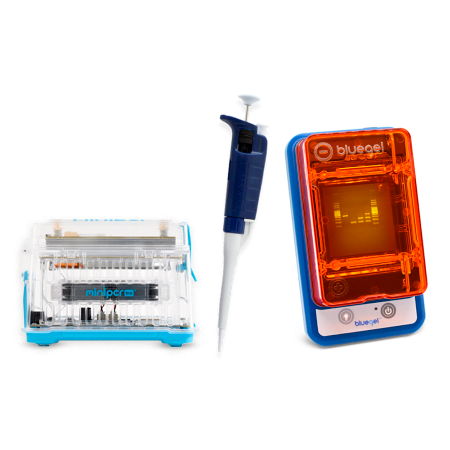
TIMELINE
FAQ
PAST WINNERS
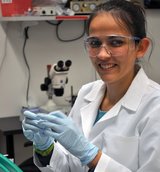
Anna-Sophia Boguraev
Fox Lane High School, NY
Current position: MD/PhD student at Harvard University/Massachusetts Institute of Technology
Project: To test the effect of cosmic radiation and microgravity on the immune system
Launched to space: April 2016
Published in NPJ Microgravity in 2017
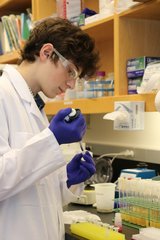
Julian Rubinfien
Stuyvesant High School, NY
Current position: undergraduate student at Yale University
Project: To measure the length of telomeres in space
Launched to space: April 2017
Published in FASEB BioAdvances in 2019
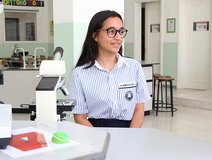
Alia Al Mansoori
Al Mawakeb School, Dubai
Current position: undergraduate student at the University of Edinburgh
Project: To study gene expression changes in space that might help protect astronauts from unwanted cell death
Launched to space: August 2017
Published in PLoS One in 2018
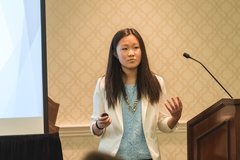
Sophia Chen
Lakeside High School, WA
Current position: undergraduate student at Princeton University
Project: To measure cancer-inducing genomic instability in astronauts
Launched to space: April 2018
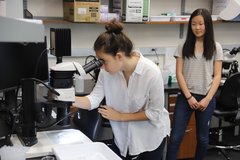
Liza Reizis
Stuyvesant High School, NY
Current position: undergraduate student at New York University
Project: To assess the effects of microgravity on the differentiation of immune system cells
Launched to space: April 2018
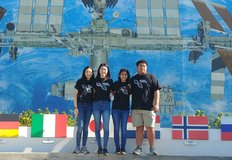
Rebecca Li, Michelle Sung, Aarthi Vijayakumar & David Li
Mounds View High School, MN (Rebecca, Michelle, and Aarthi), Woodbury High School, MN (David)
Current positions: undergraduate students at Yale University (Rebecca & Aarthi), Johns Hopkins (Michelle), and Massachusetts Institute of Technology (David)
Project: To use CRISPR/Cas9 genome editing as a tool to investigate double-strand break repair in microgravity
Launched to space: May 2019
Published in PLOS One in 2021
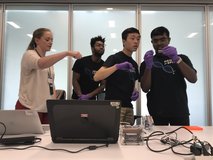
Finsam Samson & Yujie Wang
Troy High School, MI
Current positions: undergraduate students at Stanford University (Finsam) and UC Berkeley (Yujie)
Project: To study how spaceflight affects the expression of genes involved in neural function
Launched to space: November 2020
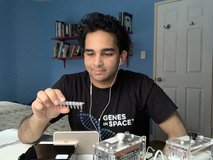
Kristoff Misquitta
Stuyvesant High School, NY
Current position: undergraduate student at Massachusetts Institute of Technology
Project: To probe the basis of spaceflight-induced changes in drug metabolism
Launched to space: August 2021
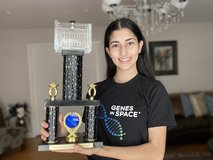
Selin Kocalar
Leigh High School, CA
Current position: undergraduate student at Massachusetts Institute of Technology
Project: To develop a biosensor to test for water contamination aboard spacecraft
Launched to space: July 2022
Published in ACS Synthetic Biology in 2024
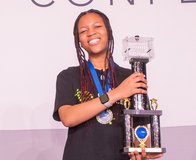
Pristine Onuoha
East Chapel Hill High School, NC
Project: To understand the basis for telomere lengthening observed in space travelers
Launched to space: June 2023
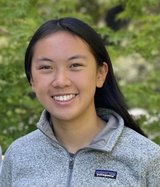
Isabel Jiang
Crystal Springs Uplands School, CA
Current Position: Attending Yale University
Project: Detection and Treatment of LINE1 Retrotransposon Activation in Space
Launched to space: September 2024
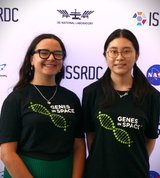
Isabelle Chuang & Julia Gross
The Nightingale-Bamford School, NY
Project: Real-time Tracking of Microgravity-Induced Effects on Phage-Host Interactions Using Fluorescence
Launching to space: 2025
